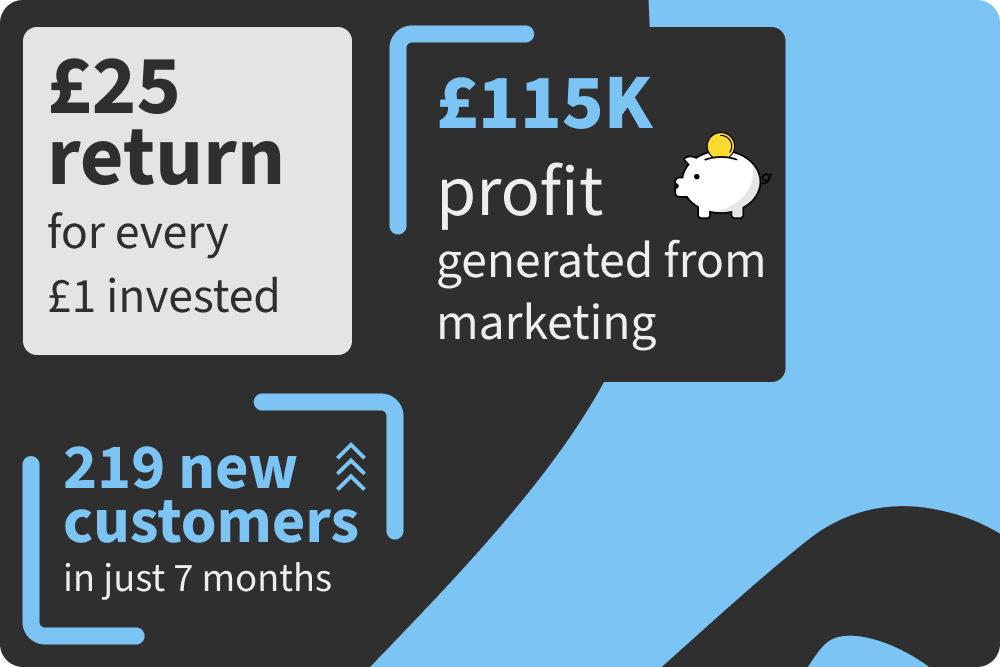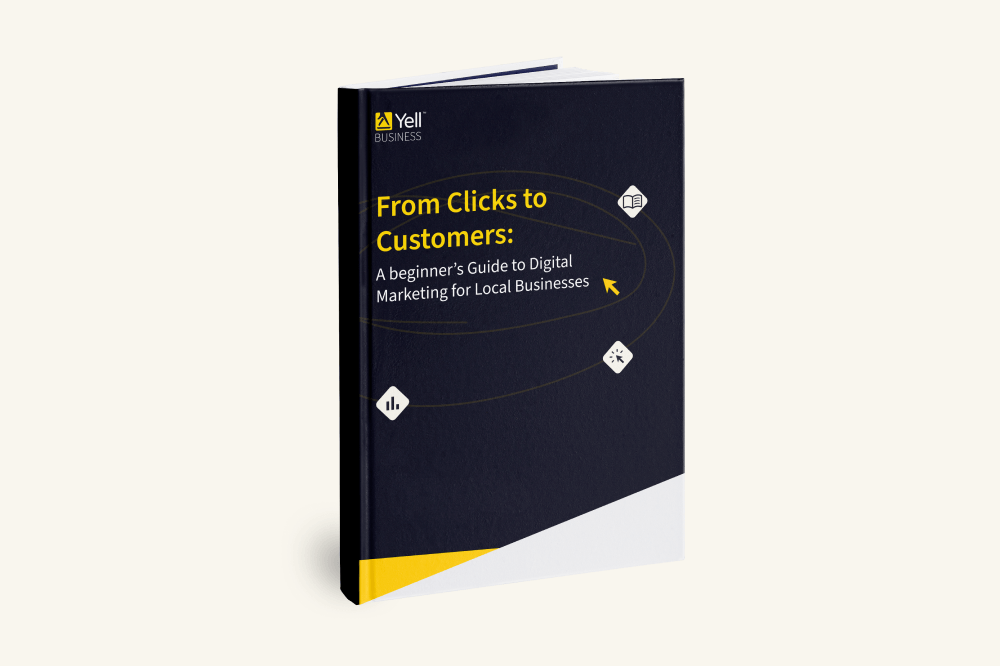Running a small business means balancing many tasks, and marketing can often feel overwhelming, especially when you’d rather spend time innovating or creating. But here’s the good news: the right marketing tools can help you work smarter and scale faster. By streamlining campaign planning, strategy launches, and result analysis, these tools keep you efficient and ready to grow your business.
Having the right marketing tools is key. But with so many tools out there, how do you know which are worth your time and money? We’ve got you covered. In this article, we’ll show you how to pick the best marketing tools for your business, how to use them effectively, and how to make sure you’re getting the most out of your marketing efforts.
What are marketing tools and why should you use them?
From social media to email campaigns and SEO, marketing tools can ease the pressure while driving performance. For small businesses like yours, they’re game changers. Here are just a few of the ways they can help:
- Save time: Automating routine tasks like posting on social media or sending out emails saves companies an average of 6+ hours per week.
- Track performance: Monitoring your marketing efforts and seeing the bigger picture allows you to make adjustments to improve.
- Save money: Many tools are affordable and keep you from spending big on more traditional ads.
- Grow your audience: Digital marketing tools can help you reach more people without working overtime.
All in all, marketing tools are a cost-efficient way to get more done, reach more customers, and grow your business. Take this example: a small Welsh business used a combination of tools to create a winning strategy, resulting in an estimated £4,000,000+ profit from marketing efforts.
“We’ve never had this kind of online visibility before. The number of calls we get has shot up, giving us more opportunities to win business.”
– Sam Griffin, General Manager
Top digital marketing tools for small businesses
There are lots of digital marketing tools out there that make it easy for small businesses to make smart decisions about how to reach and engage their target audience.
If you’re looking for a solid return on investment, these are the top tools we recommend,
categorised by the tasks they’ll help you with:
Social media tools
A quarter (28%) of small businesses in the UK generate more sales from social media than any other channel, according to research from BT. But with so many platforms to manage, where do you focus efforts? That’s where these social media marketing tools for small businesses can help.
- Hootsuite: This tool lets you schedule posts, track mentions, and analyse your social media performance in one place. It’s perfect for managing multiple accounts without the stress.
- Buffer: Like Hootsuite, Buffer allows you to plan and post content ahead of time. Plus, it has a simple dashboard to monitor all your social accounts.
- Canva: No design team? No problem. Canva lets you create stunning, on-brand visuals for your social posts, even if you have zero design experience.
Email marketing tools
With an average ROI of 3,500%, email marketing remains a powerful way to connect with customers. Here are some of the best email marketing platforms for small businesses:
- Mailchimp: An easy-to-use email platform that allows you to create and send beautiful emails. It’s ideal for businesses just starting with email marketing.
- Constant Contact: This tool offers great email templates and automation options. It’s great for small businesses looking to stay in touch with customers through newsletters and promotions.
- ConvertKit: Perfect for creators or businesses that need to segment their email lists and send personalised campaigns.
Automation tools
Did you know that 63% of companies that outperform their competitors use marketing automation? Automation can streamline marketing, personalise content, scale efforts, and boost ROI. But with AI and automation booming, it’s hard to know where to start. Here are a couple of the best marketing automation tools for small businesses:
- Hubspot: A powerful tool that combines CRM, email marketing, and social media management, HubSpot helps you automate and optimise your marketing in one place.
- Zapier: This tool connects all the apps you use and automates repetitive tasks. For example, you can set it up to automatically add new email subscribers to your Mailchimp list.
SEO tools
SEO is a cost-effective way to increase visibility and attract customers without relying on expensive ads. For example, by optimising their Google Business Profile, this small business improved local search rankings, driving more calls and visits. However, while there are many SEO tools on the market, some are more effective than others, so it’s worth taking the time to choose the right one for you. Here are a few established favourites:
- SEMrush: A comprehensive SEO tool that helps you find keywords, monitor rankings, and spy on competitors. It’s perfect for businesses wanting to improve their website’s search engine visibility.
- Ahrefs: Like SEMrush, Ahrefs focuses on backlink analysis, keyword research, and competitor insights, helping to boost your site’s SEO.
- Moz: Known for its user-friendly interface, Moz helps you track keyword rankings and optimise your website to rank higher on Google.
Paid vs. free marketing tools: Which is right for your business?
When it comes to choosing between paid or free marketing tools for small businesses, it really depends on your business goals and budget. Here’s a quick rundown of the benefits of each:
| Free | Paid | ||
| Pros | No costGreat for businesses just starting out | Pros | More featuresAdvanced analyticsBetter customer support |
| Cons | Limited featuresFewer integrationsUsually lack customer support | Cons | Can get pricey, particularly if you’re using several tools at once |
Marketing teams often face the challenge of having their budget squeezed after financial priorities are met. But if you have time, there are plenty of free resources to keep your digital marketing on track. Many of the tools listed above offer free options to get started.
Pro tip: Start with free tools to see what works for your business. If you need more advanced features, you can always upgrade to a paid plan later. For example, Mailchimp has a free plan that’s great for beginners, but if your business grows and you need more features (like automation or advanced reporting), you can switch to a paid plan.
How to choose the right marketing tools for your business
So, you know their benefits. You know some of the tools that are available. But how do you choose which is right for your business? Start with these steps:
- Step 1: Identify your marketing goals. Are you trying to build your social media presence, increase your email subscribers, or improve your website’s SEO? Knowing your goals will help you choose the right tools.
- Step 2: Set a budget. If you’re just starting out, look for free tools that will help you get the basics done. As your business grows, you can gradually invest in paid tools that offer more features.
- Step 3: Look for tools that integrate well with each other. If you’re using multiple tools (like a CRM, email platform, and social media scheduler), make sure they can work together to save you time.
- Step 4: Test and evaluate. Most tools offer free trials, so test them out and see which are easy to use and give the results you need.
Next steps
With the right marketing tools, your small business can take off. Whether you’re automating emails, boosting your social media presence, or improving your website’s SEO, these tools will help you save time, reach more customers, and grow your business faster. Start small, experiment, and don’t forget to keep tracking your results. This is how you’ll find out what works best for you.
Want to learn more about the best marketing tools for small businesses? With 50+ years of experience in helping local businesses to grow, our team of experts is on-hand to talk about what’s right for you and your business.
Explore our case studies for real-world digital marketing examples tailored to small businesses.

Download our free guides to find the digital marketing approach that works best for you.







